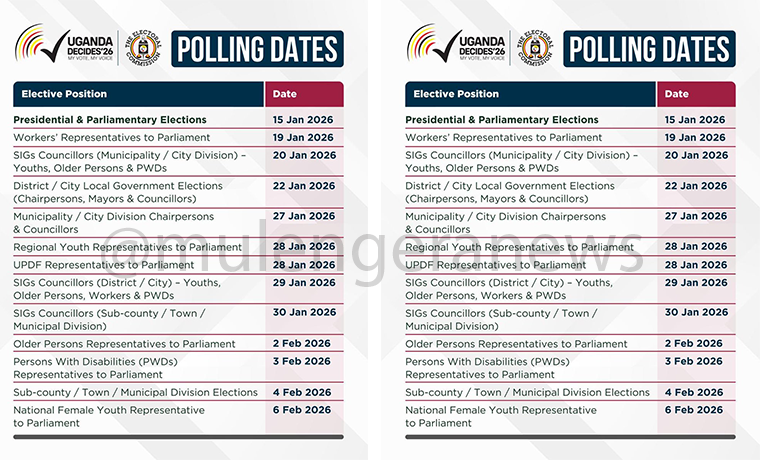By Mulengera Reporters
One Saturday morning in early 2000s, then CMI boss Noble Mayombo appeared on Capital Gang talk show where moderator Robert Kabushenga co-hosted him with Dr. Emmanuel Ndahiro who was an influential official in the Rwandan government. Like today, the two countries were having belligerent exchanges creating war hysteria similar to what is prevailing today.
That Saturday morning, Mayombo eloquently called for de-escalation maintaining Kampala had no appetite for war with Rwanda because, in his estimation, that war would only produce two losers. He maintained Uganda would have nothing to celebrate when the party they have vanquished is Rwanda and vice versa. He said there was so much history between them, a war between the two countries would produce two losers and make no sense at all. This caused Ndahiro, who initially was spitting fire, to tone down and begin making reconciliatory remarks.
MWENDA’S TURN
In his latest missive, titled “Uganda and Rwanda’s slippery slope,” veteran journalist Andrew Mwenda makes exactly the same argument only that he arrives at more unrestrained conclusions than Mayombo made many years ago. This is how a plain-speaking Mwenda puts his point: “It’s possible such war [between Uganda and Rwanda] can cause political rapture inside Uganda leading to regime collapse. But this is equally likely for Rwanda. What is most likely-which both actors on both sides need to take seriously-is that a war between Uganda and Rwanda would most likely not produce winners but losers on both sides. It can cause the collapse of both regimes.” Calling on Kampala to be extra cautious, Mwenda is fearful that full blown war with Kigali could “rapture” Museveni and his NRM out of power.
Mwenda, who for long was personally very friendly to both Presidents Museveni and Kagame and therefore knows much more as a pundit on the subject than he is comfortable disclosing, adds that: “Anyone on either side who believes they can accurately predict the outcome of such a war is mistaken big time.”

He must be dealing with conflicting loyalties because the two leaders have for long been his blossom buddies and indeed the manner of presentation of his latest missive is indicative of an author who had to exercise maximum caution and restraint.
As one who knows how both leaders think towards each other, Mwenda observes that whereas it’s possible, ideal and desirable to avoid military confrontation, it’s increasingly becoming inevitable for current stalemate to escalate into direct military confrontation. He argues that with both countries having their armies facing each other so closely at the border, any slight mistake or provocation similar to last week shootings could cause the situation to rapidly escalate into full blown war.
He adds whereas its possible Uganda performed dismally because of being “unprepared,” the victories registered in the Kisangani clashes (of 1998) gave the Rwandans confidence to begin assuming themselves to be militarily superior to Uganda. He says the Kisangani scores remain unsettled and this is how he makes out his case: “Evidently the current escalation is because of this [Kisangani] unfinished business. The Kisangani battles didn’t resolve the issue of who is militarily supreme; Rwanda believed it won and is therefore the better army; Uganda believes it was just unprepared.”
Mwenda also says disagreements between a strong power and the new regime it props up in its would-be vassal state isn’t entirely a rare thing in history. He enumerates examples where a stronger regional power turned to obliterate a protégé state it put in power. He gives examples of the Horn of Africa where the Eritrean government sponsored Tigrian People’s Liberation Front to capture power in Ethiopia only for the two nations to later on go to war. Kagame’s Rwanda too turned against Desire Laurent Kabila, their supposed stooge installed after the Mobutu ouster.
Arguably the region’s most eloquent pundit on matters of this nature, Mwenda also refers to the Soviet Union which turned against the Chinese Communist Party whose ascension to power it had earlier on supported. China’s CP also turned guns onto the Communist Party government in Vietnam which it had sponsored to capture power. In Cambodia, the Khmer Rouge regime was ousted by the very Vietnamese government that had propped it up.
Mwenda also submits why he considers war inevitable between UPDF and RPA. “As the two armies stand facing each other across border in such an irritatingly close contact, it will be extremely difficult, if not impossible, to avoid incidents like the one last week…The presence of troops at the common border increases the suspicions of an impending attack, keeping both militaries under alert. It is hard to imagine how this situation can continue without open confrontation,” argues Mwenda some of whose military supremacy-related views are similar to the hostile coverage with which the Rwandan State-owned New Times is depicting Museveni branding him a vulnerable veteran leader.
In one of their latest articles, the New Times argues that contrary to what Uganda wanted the world to believe, the war that heroically ousted Congolese dictator Mobutu (resulting into the capture of Kinshasa) was executed by Rwandan troops. The narrative in the latest New Times article is that the Uganda has always exaggerated its role in the Mobutu ouster. Their articles clearly show how irretrievably the relations between the two countries have broken down. (For comments, email us at mulengera2040@gmail.com).






























